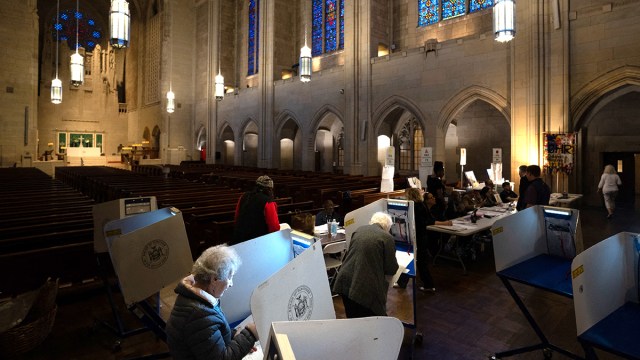
In a recent court filing, the IRS said that houses of worship in the United States should be allowed to make political endorsements without losing their tax-exempt status.
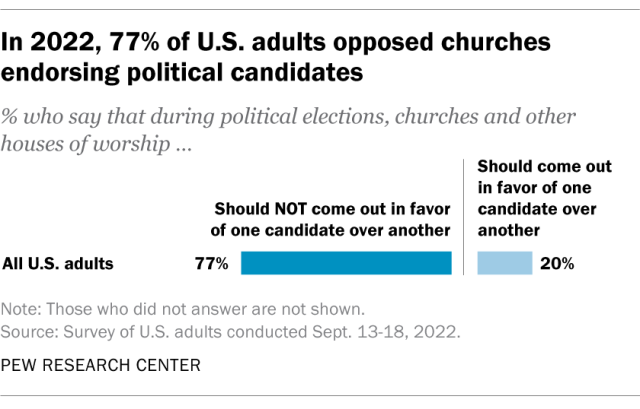
When Pew Research Center last asked about this in September 2022, 77% of U.S. adults said churches and other congregations should not make political endorsements. Far fewer (20%) said religious organizations should come out in favor of one candidate over another during political campaigns.
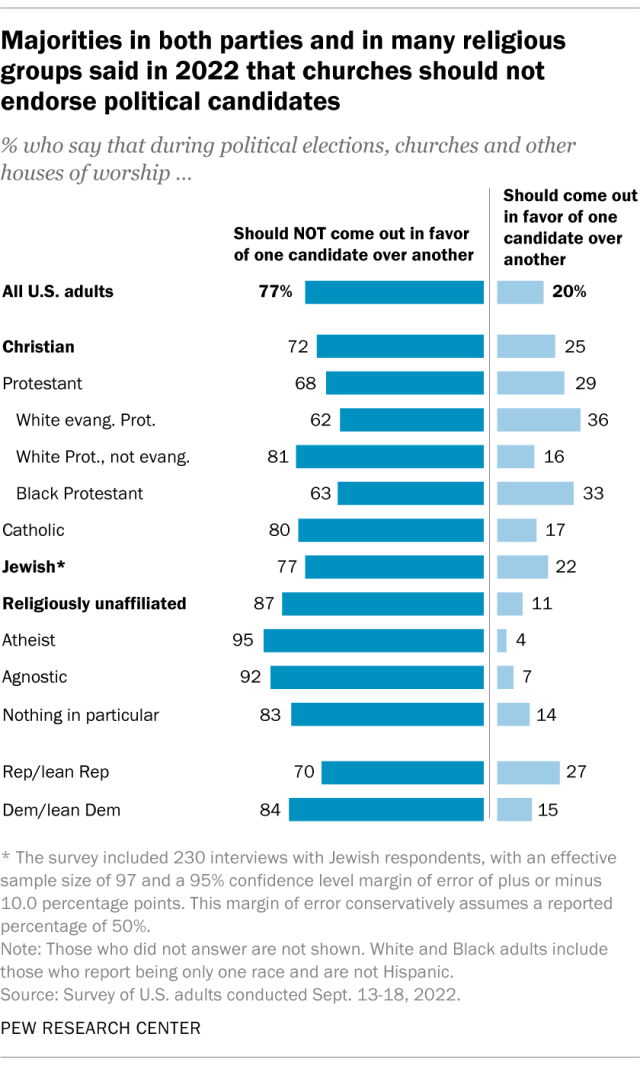
Majorities in both parties said in the 2022 survey that churches should avoid political endorsements: 84% of Democrats and Democratic-leaning independents said this, as did 70% of Republicans and GOP leaners.
There was broad agreement across major religious groups, too. Majorities in every religious category we could analyze in the survey – including Christians, Jews and adults with no religion – opposed the idea. Still, White evangelical Protestants and Black Protestants were more open than people in other religious categories to churches endorsing political candidates.
The Center has asked this question 10 times since 2002. But most of the older surveys were conducted by telephone, whereas the latest survey was conducted online, which means it is not possible to draw direct comparisons between the 2022 findings and the earlier results. Still, every time we have asked this question going back to 2002, most respondents have said churches should not endorse political candidates.
Should churches weigh in on day-to-day social and political matters?
Americans are a bit more inclined to say churches should speak out on social and political issues than to support churches and other houses of worship endorsing political candidates.
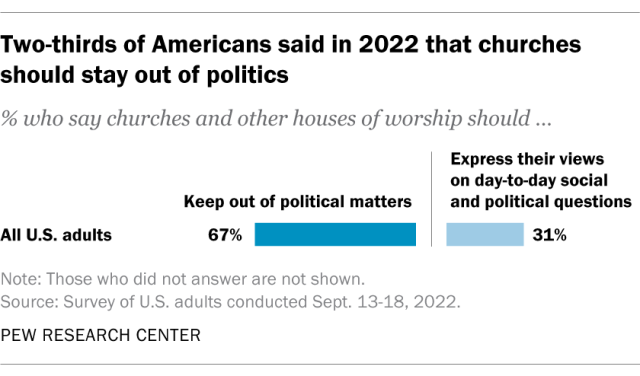
In the September 2022 survey, 31% of adults said churches and other houses of worship should express their views on day-to-day social and political questions. (This was considerably higher than the 20% who said churches should endorse individual candidates.)
Still, two-thirds of Americans said churches should keep out of political matters altogether.
Of course, it’s possible that some Americans think churches should be allowed to make political endorsements even if churches should not actually make such endorsements. Pew Research Center has never asked respondents if they think churches should be allowed to endorse candidates without losing their tax-exempt status.
How often do political topics come up in church?
In a 2021 study, the Center analyzed the texts of nearly 13,000 religious services that were shared online by more than 2,000 U.S. congregations – nearly all of them Christian churches – during and immediately after the 2020 presidential campaign.
Overall, 67% of congregations that shared services online posted at least one service that mentioned the election. Of the services that mentioned the election, 46% discussed issues, candidates or parties, while another 20% encouraged voting.
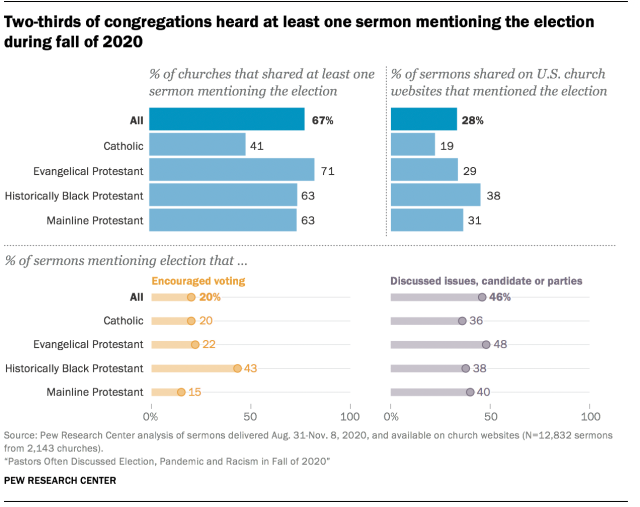
At the same time, the study found that relatively few churches openly campaigned for particular candidates or parties. In fact, explicit endorsements from the pulpit were rare enough that researchers could not develop a machine learning model that would reliably identify such examples in the database we compiled.
Note: Here is the topline for the Sept. 13-18, 2022, survey, and its methodology.
